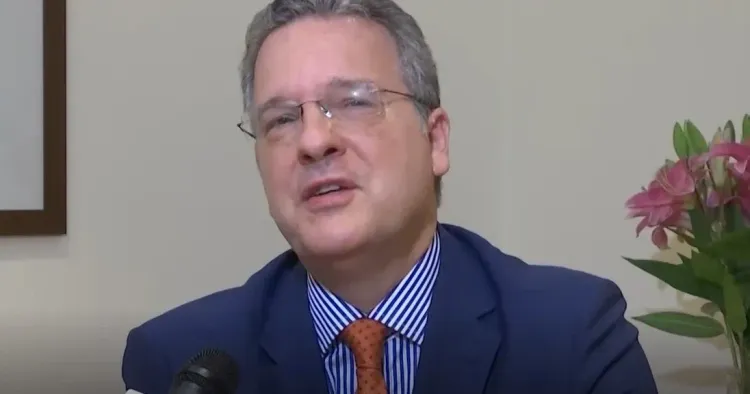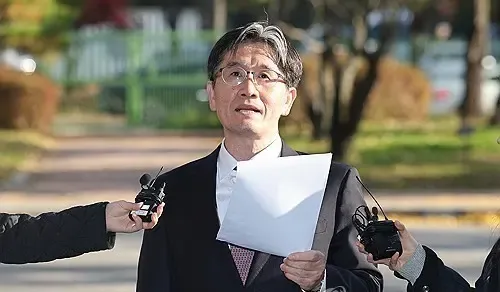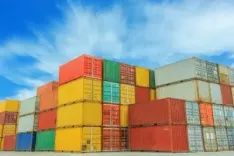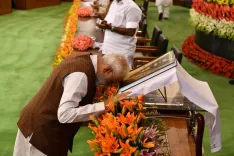How Will These Tariffs Impact Trade? Insights from Brazil's Ambassador to India

Synopsis
Key Takeaways
- US tariffs on Brazil and India are significantly affecting trade relations.
- Brazil emphasizes its long-standing ties with India.
- Collaboration is favored over retaliation in response to tariffs.
- Dialogue with the US is welcomed, but with limits on sovereignty.
- Brazil is committed to international law and multilateralism.
New Delhi, Aug 9 (NationPress) Brazil’s Ambassador to India, Kenneth Felix Haczynski Da Nobrega, addressed the recent decision by US President Donald Trump to impose tariffs on Brazil. He noted that these tariffs would significantly impact Brazil's trade with a longstanding partner, stating, "we have been developing strong links for over 200 years of relations."
This statement follows President Trump imposing an additional 25 percent tariff on Indian imports, raising the total duty to 50 percent — the highest among America's primary trading partners. This increase in tariffs for India is tied to its ongoing oil imports from the Russian Federation, while Brazil's inclusion is reportedly influenced by domestic political changes.
In an interview with IANS, Da Nobrega remarked, "These tariffs will indeed influence our trade with a time-honored partner with whom we have maintained robust connections for over two centuries. Nevertheless, the ties between Brazilian and American societies run deep, encompassing business, cultural exchanges, and personal relationships — these connections will endure."
Discussing the broader repercussions as nations, including Brazil and India, face a 50 percent US tariff, Da Nobrega highlighted a pivotal dialogue between Brazilian President Lula and Prime Minister Narendra Modi.
"The discussions between President Lula and Prime Minister Modi, which lasted over an hour, revolved around enhancing our bilateral relations in this economically challenging environment. The global trade landscape has become quite uncertain due to these unilateral actions," he stated.
"Their conversation aimed at transforming these challenges into new avenues for bolstering our bilateral ties. Just a month prior, Prime Minister Modi visited Brazil, where both leaders laid out a concrete strategy for our economic relations over the next decade," he added.
When addressing how Brazil intends to respond to the US tariff, specifically in the agriculture sector, Da Nobrega emphasized the importance of collaboration over retaliation.
"We are not focused on retaliating against any nation. Our discussions have centered on how India and Brazil can strengthen their economic partnership amidst this unpredictable geopolitical backdrop. It's about discovering innovative ways to enhance our collaboration," he conveyed.
In response to a question regarding Brazil's actions if President Trump does not reconsider the tariffs, Da Nobrega expressed Brazil's willingness for dialogue but indicated there are limits.
"We remain open to negotiations — to a degree — ensuring that our sovereignty is non-negotiable. We are certainly receptive to discussions with the United States concerning its economic policies towards Brazil. However, some matters are beyond negotiation," he asserted.
Regarding President Lula's call for the World Trade Organisation (WTO) to evaluate the US tariff measures, Da Nobrega reinforced Brazil’s commitment to the principles of international law.
"Brazil has consistently advocated for adherence to international law. The agreements of the WTO and the multilateral trading framework are fundamental to this. Brazil underscores the significance of multilateralism and compliance with international regulations, which is why we formally declared the violations of the multilateral trading system by the United States," he informed IANS.
When asked about Brazil's overall reaction to the US's approach, the Ambassador mentioned that Brazil is still analyzing the motivations behind this decision.
"We are still investigating the underlying factors driving this stance from the American government. Fundamentally, we are open to negotiation — provided the tone and terms of dialogue acknowledge Brazil’s economic significance and global standing," he concluded.









